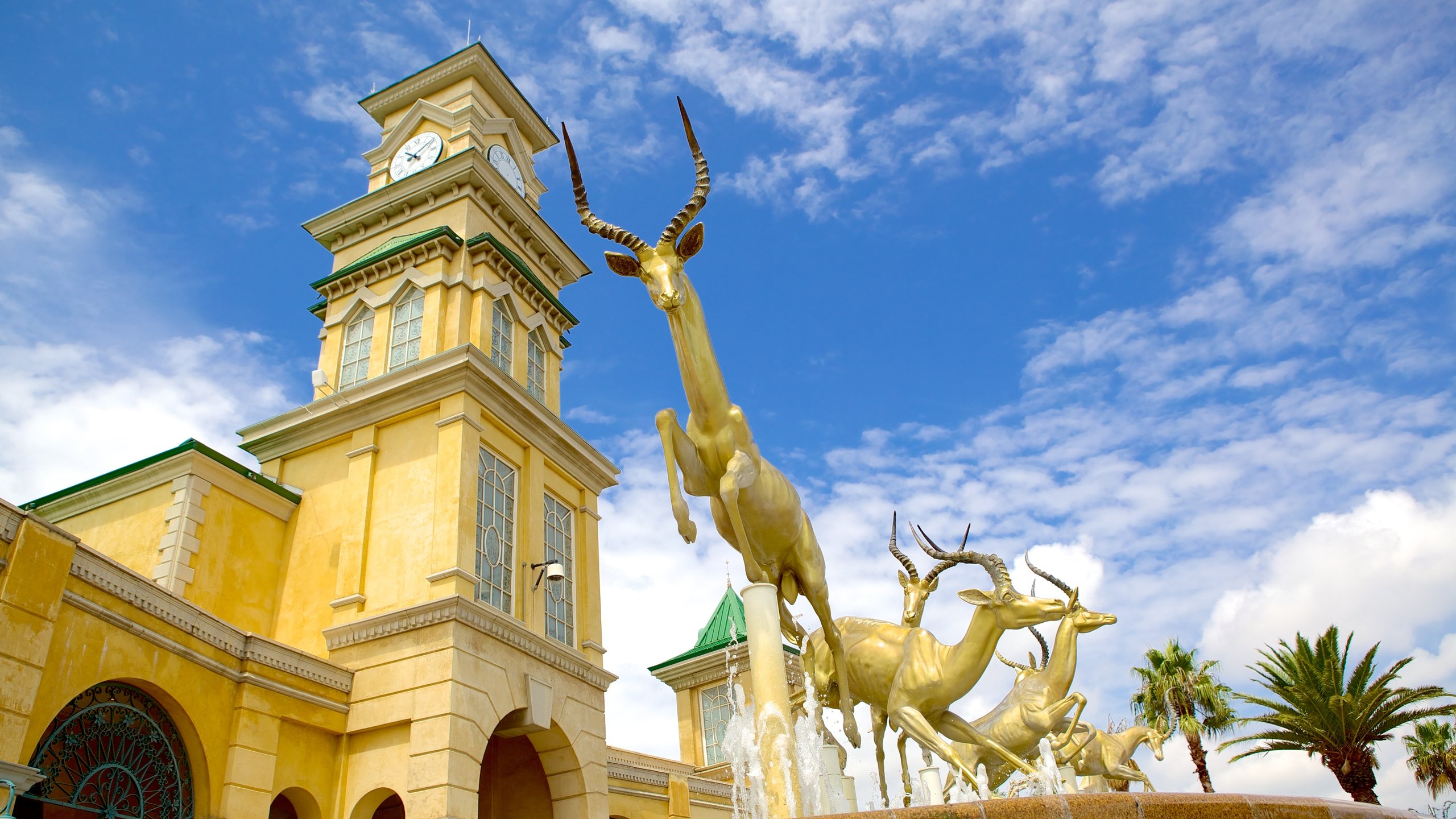Johannesburg North Attractions for Dummies
Johannesburg North Attractions for Dummies
Blog Article
The 3-Minute Rule for Johannesburg North Attractions
Table of Contents6 Simple Techniques For Johannesburg North AttractionsJohannesburg North Attractions Things To Know Before You Get ThisIndicators on Johannesburg North Attractions You Should KnowWhat Does Johannesburg North Attractions Do?Johannesburg North Attractions Can Be Fun For EveryoneUnknown Facts About Johannesburg North Attractions
The city owes its area to the existence of an also a lot more priceless resource: gold. The city grew on the side of the Witwatersrand Main Reef, a subterranean stratum of gold-bearing quartz-silica corporation that arcs for hundreds of miles under the Highveld. A lot of the gold mines in the city ceased operation in the 1970s, however in its day the Witwatersrand gold sector made up even more than 40 percent of the world's annual gold manufacturing.Johannesburg has a pleasant climate. The city delights in concerning eight hours of sunshine per day in both winter season and summertime.
What rain the city receives drops practically specifically in the summer months, typically in incredible late-afternoon electrical tornados., where numerous residents still depend on coal for fuel.

The Basic Principles Of Johannesburg North Attractions
The balance of the city is occupied by whites. Holiday accommodation differs in personality and high quality. Soweto is infamous for its limitless rows of municipally built, two-room matchbox homes, yet it likewise has a couple of flourishing enclaves as well as bursting squatter camps, where 10s of thousands live without water, electricity, or sanitation facilities.
Physical development, although somewhat restricted by transportation, continued swiftly as immigration to South Africa, and Johannesburg specifically, boosted dramatically. This issue was resolved in the 1930s when the auto was introduced in mass production to South Africa. Autos were, generally, confined to the wealthy, and allowed them to relocate to the north of the city and commute into the centre.
Most bad suburbs were mixed, with bad blacks and whites living together, although the wealthy suburbs were normally booked for whites.
The previous system of eleven numbered areas was reorganised in 2006. Marshalltown, as seen from the top of the Carlton Centre. The M1 and M2 run behind the structures, and the southerly suburban areas expand past the highway limit. The internal city of Johannesburg lies within the city's Area F. The approximated populace of the region is 200,000, [] The number of people living in the internal city on an informal basis is unidentified, as several are illegal immigrants. Most higher-income residents and white individuals have relocated to the northern residential areas and have actually been replaced by read the article lower-income black people. The unemployment, education and learning, and age profiles of the location are all unknown, because of the trouble of obtaining trustworthy details concerning the area.
The Only Guide to Johannesburg North Attractions
Yeoville and Bellevue have a mix of apartment buildings and solitary household units on tiny whole lots. The area lies on a mountainous divide navigate here that runs from east to west. The most noticeable geographical feature is Observatory Ridge, which is named for the big observatory located on it. The leisure spaces are no much longer utilized, due to security issues.

Johannesburg Arena, a training ground for both the Golden Lions and Orlando Pirates, is adjacent. The eastern suburbs of Johannesburg are situated in the city's 7th [] and 9th [] areas. The area is additionally functionally incorporated with East Rand border towns beyond the official limit of Johannesburg, such as Bedfordview and Edenvale (both part of Ekurhuleni Metropolitan District).
Everything about Johannesburg North Attractions
The eastern suburbs are some of the earliest areas of Johannesburg, there are big areas of Jewish and various other European histories, the majority of the population is English speaking. There are three golf programs as well as a number of secured ridges with viewsites.
The location is mainly made up of old "matchbox" houses, or four-room residences developed by the federal government, that were constructed to offer low-cost accommodation for black workers during racism. Soweto is an acronym, standing for "South Western Townships". Road after street in this location is lined with matchboxes; nevertheless, there are a couple of smaller sized areas where flourishing Sowetans have actually constructed homes that are much more similar in stature with those in even more affluent suburbs.
Hostels are one more popular physical feature of Soweto. Initially built to house male migrant employees, numerous have been improved as residences for couples and families. The click for more N1 Western Bypass skirts the eastern border of Soweto. The suburb was not historically permitted to produce work centres within the location, so nearly all of its residents are commuters to other parts of the city.
About Johannesburg North Attractions
The domestic areas in the northern suburbs are mostly official, with no significant locations of casual housing, or housing that lacks a permanent structure. This is a recognized area, there is a pattern of land usage change from property to industrial, particularly along major arterial roads and around well established nodes.
Roadways to the east and west are much less well established, as there are no highways taking a trip in that direction. Towards the northern boundary of the city, the density of development reduces, leaving big areas of primitive land around Midrand.
The 2-Minute Rule for Johannesburg North Attractions
, which is situated on a hill overlooking the inner city and Hillbrow.
Report this page